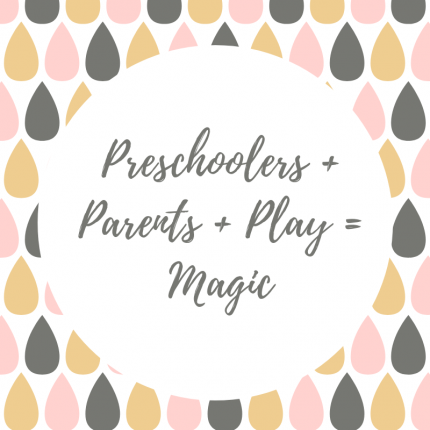Sponsored post from Get Ready 4 Kindergarten
How do young children learn? By trying things out through the filter of their 5 senses.
- A newborn baby learns through their sense of touch that there are loving caresses and snuggly ways of being held. Babies learn the difference between wet and dry or warm and cold through touch and they quickly learn which feels better.
- They see a parent’s familiar face or a favorite toy and they smile to show recognition.
- They hear the dog bark and may cry in fear or they hear their sibling’s laugh and turn their head in that direction.
- A baby tastes warm milk and it tastes good, tasting bath soap would not bring the same happy response.
- The wet family pet doesn’t smell good, but nestling into Mom’s neck smells like love and happiness.
A preschool child learns through their senses as well, but in a more complex way. Children use play to learn all sorts of new things through their 5 sense filter.
Perhaps you have heard the Ben Franklin quote, “Tell me and I forget, teach me and I may remember, involve me and I will learn.” This is absolutely true when it comes to young children.
The NAEYC (National Association for the Education of Young Children) says: “Preschool children learn best … when they can safely encounter and explore many interesting things in their environment.” (www.naeyc.org/dap/preschoolers) The research is clear that children learn best (and most easily) by engaging.
We know that children learn best through play! Play can be unstructured, random, and spur of the moment opportunities like:
- playing with a child you just met at the park or the beach
- running and jumping in a pile of freshly raked leaves in the yard
- building a family snowman after a surprise overnight storm
- throwing a blanket over a table and making a fort, cave, castle, house, or underwater cavern
Unstructured and imaginative play with another child builds vocabulary, demands cooperation, encourages sharing and taking turns. And your child learns these things while having fun.
Structured play is another critical part of learning. This is when you set up a play area or situation for your child. You may select the toys or set up a fort or suggest an idea for play. For example, your family is going camping next month for the first time and you want your child to think about the trip in a positive way before you go.
- You might make a tent out of a blanket thrown over the back of 2 straight-backed chairs and add some pillows and books for a fun place to read.
- Then at noontime, you pack lunch into a sack or backpack and take it into the “tent” to share a picnic. After lunch, you bring in the favorite lovey and blanket, read one more story and settle your child in for a nap or quiet time in the “tent”.
- Maybe you go to the library and get books about camping and tents and cooking outdoors to read in your “tent”. The family might take turns reading in the “tent” over the next few days, maybe playing a board game in the tent to practice for rain on your camping trip.
- Over the weekend, you may want to have a family sleepover in a tent or on the floor around the tent. Maybe have a pretend campfire and sing songs before settling down to sleep or making s’mores in the microwave to share around your “campfire” made of blocks and construction paper.
This child-centered play and family-centered play will help your child learn what to expect when you really do go camping.
- In addition, your child will build the vocabulary he/she needs to learn from the camping experience: tent, pitch a tent, stakes, pop-up trailer, camper, shelter, cook stove, sleeping bag, campfire, marshmallow, toast, hike, trail, compass, latrine, picnic table, lantern, bug spray. All of these vocabulary words help your child learn more from the experience so that they can think and talk about their experience.
The more words they have to express themselves, the more they are able to connect thoughts and events in their minds which will make them much more confident in their ability to learn and to connect with other people. Play is the best way for young children to learn!
At Get Ready 4 Kindergarten, we understand how young children learn and build all of our programs and materials around the 5 Building Blocks of Early Learning (Talk, Read, Play, Think, Do) to make learning easy for your child and teaching easy for you!
Sign up for our FREE monthly newsletter and see if one of our programs could be right for your family:
www.getready4kindergarten.com
Karen Meyer is a retired teacher, school counselor, and principal who has always believed in the community approach to education. Parents, schools, and communities working together to educate, support, and protect each child.
Latest Posts

While nearly every college and university today is eager to accept homeschooled students into their institutions, homeschooling families need to understand that their student’s application…
Read more >
Guest Post by Gabriel Morse For several years, I sat for long hours every day behind one of those battleship gray desks in a windowless, dull, gray office. The pay was enough to take care…
Read more >
This post is sponsored by Little Monsters Universe. I'm Tina Salmanowitz, an advocate for homeschooling and science education. With over a decade of experience as a science educator (in class…
Read more >


